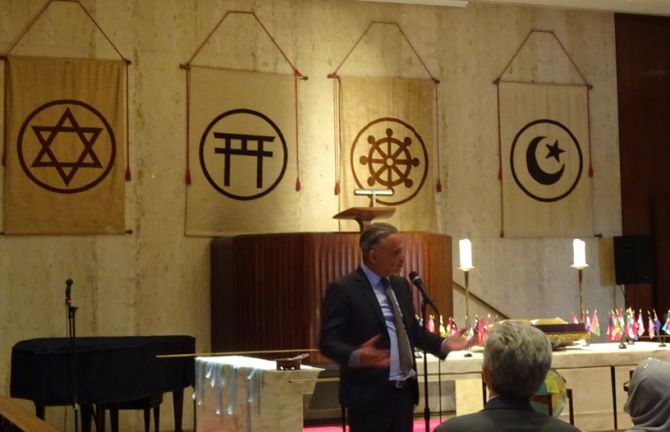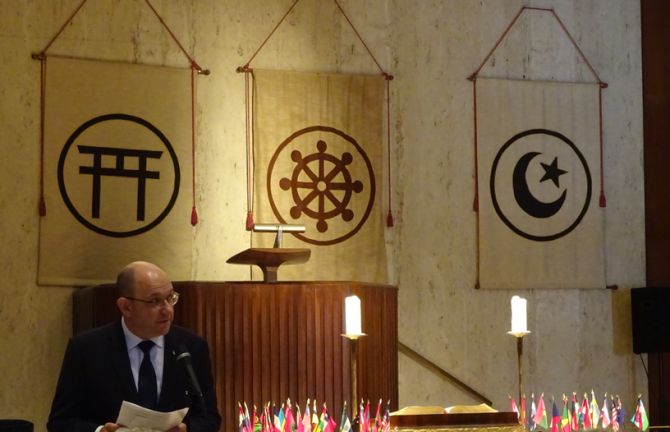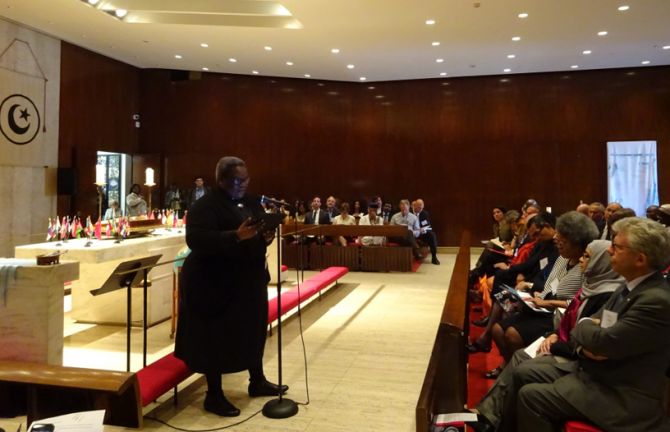



Update
Faith leaders meet to step up action on poverty and development
24 September 2015
24 September 2015 24 September 2015Faith-based communities around the globe are at the forefront in pushing societies to do more to tackle poverty and meet new global development priorities. This was the message emerging from a high-level event that took place on the eve of the Pope’s address to the 70th session of the United Nations General Assembly in New York this week.
Entitled Meeting the Moral Imperative to End Extreme Poverty and Realize the Sustainable Development Goals (SDGs), the meeting, held on 24 September, brought together a host of faith leaders and faith-based organizations, as well as representatives of governments, multilateral organizations such as the World Bank Group and the United Nations, including UNAIDS.
The participants explored concrete ways in which they could work together, alongside governments and other partners, to ensure that attaining the SDGs becomes a reality, with faith-based groups using their reach and influence to make a difference on the ground. Faith leaders presented an action framework to help faith-based organizations plan and implement specific action at the national level.
Prominent faith leaders at the event recognized, and showcased, the role that these organizations have traditionally played in helping to alleviate poverty and challenging critical health and development issues, such as HIV. The AIDS response has benefited enormously from their efforts in, for example, health-care provision and challenging stigma and discrimination. This is especially the case in sub-Saharan Africa, where faith-based organizations provide services to millions of people living with HIV, as recognized by the recently released Lancet series on faith-based health care.
Phumzile Mabizela, the Executive Director of INERELA+, the global interfaith network of faith leaders who are living with or personally affected by HIV, took the opportunity during the meeting to launch a call to action for faith-based organizations to Fast-Track the AIDS response in eastern and southern Africa. They pledged to use the social capital they have developed in their respective communities to promote the Fast-Track approach and the implementation of effective programmes that champion expanded access to antiretroviral therapy and HIV testing and prevention.
Quotes
“Our faiths call on us to reduce inequality and reach out to those left behind. The SDG agenda strives to do just that. We must work together to eradicate poverty and leave no one behind.”
“In some countries, faith based organisations are responsible for 60% of service delivery. The challenge before us will be the implementation of the SDGs. We need to be humble and you should not be. Learning from faith based organisations will help to define the way forward.”
“The faith community is the guardian on public issues that are difficult. We need to reach out to people, especially young women who cannot make their own decisions about their bodies. Are our sacred spaces safe spaces for those who have survived sexual violence and rape?"



